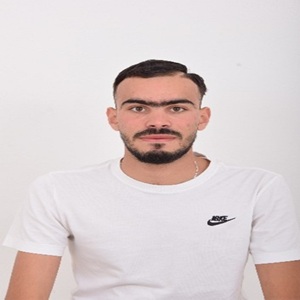Abstract Detail

Ayad Abdelilah
University Mohamed First Oujda Maroc, Morocco
Abstract
The design of drug delivery systems requires a safe and effective approach to combat serious diseases such as cancer and COVID-19. Major challenges in this field include cytotoxicity, biodistribution, functionality, incorporation, and drug release. Quercetin is known for its anti-inflammatory and antioxidant properties, making it an attractive candidate for the treatment of various diseases. This study aims to use the adsorbent properties of (001) and (00-1) kaolinite surfaces to improve the targeted delivery of quercetin. Kaolinite is a stable, low-cost, non-toxic, and environmentally friendly clay. We used molecular modeling, software Materials Studio 2020, to assess the adsorption performance of quercetin on the (001) and (00-1) kaolinite surfaces. Adsorption energies were calculated using density functional theory (DFT). The results indicate that the position of quercetin exerts a more significant influence on the adsorption interaction than the adsorption position on the kaolinite surfaces. By carrying out an analysis of the Mulliken population, the difference in electron density and the electron density of the states on the optimal adsorption system, we were able to discover the nature of the binding and the types of interaction. From this theoretical study, it is clear that the interaction of quercetin on kaolinite surfaces is controlled by both hydrogen bonding and electrostatic attraction.Biography
Abdelilah Ayad is a Ph.D. candidate in applied chemistry at the Faculty of Sciences, Mohammed First University, Morocco. His research focuses on molecular modeling and simulation, with an emphasis on adsorption mechanisms and sustainable materials for drug delivery systems. He has experience using advanced computational tools such as BIOVIA Materials Studio, CP2K, and GROMACS. His recent academic projects include predicting flavonoid solubility and studying their interactions with macromolecular matrices. Driven, autonomous, and creative, Ayad is dedicated to advancing computational chemistry for practical applications in health and materials science.
Research Interests:
• Molecular modeling and simulation
• Drug delivery systems
• Adsorption mechanisms on mineral surfaces
Published Articles and Journals Information: Dr. Ayad has co-authored several peer-reviewed articles, including publications on the adsorption mechanisms of polyphenols and essential oils using quantum chemical and molecular dynamics simulations.
